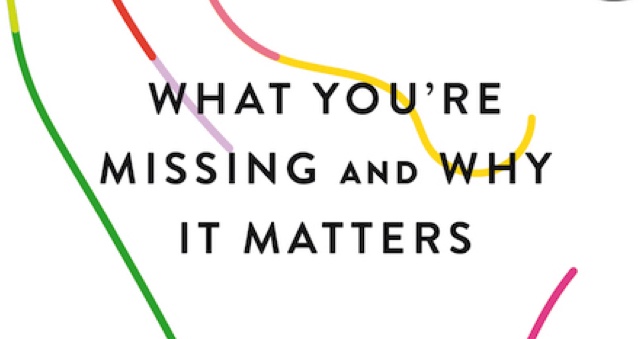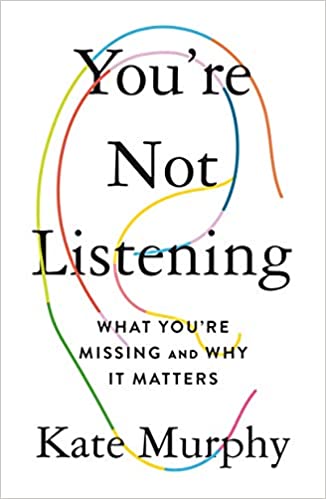

However, the most valuable and resourceful conversations that we can have are the ones that we enter with a deep sense of genuine curiosity. We assume that we already know what will be said, that we know better.

Next, there are the almighty presumptions. We avoid this possibility at all costs, in fact, reading media that confirms and affirms our own viewpoints, locking ourselves in homogenous social bubbles, unwilling to listen to opposing ideas and hence challenge our opinion.īut here’s the thing: we only become secure in our convictions by allowing them to be challenged. We identify with certain things and don’t allow our beliefs to be challenged. Then, by the time we reach adulthood, we have pretty fixed visions of the world. We are afraid to say the wrong thing so we stop listening and think of an answer while the other person is still speaking. We are so concerned about the way we are perceived that we forget what people say in an instant. It can be proved in one simple question: how many times did you forget the name of the person that just introduced themselves to you? There are many things that distort and impair our listening, but most of them have to do with our wounded egos and buried insecurities. And to be able to do that, first get to know your blind spots and misconceptions. Happily, understanding – the end goal of listening – is not a binary concept (you have it or you don’t). Without realizing it, we begin to listen selectively, to hear only what suits our preconceived ideas. The illusion of understanding diminishes curiosity and motivation to listen. The only certainty we get by not listening is that we will not learn anything new. We already know things about ourselves, yet we have no idea about the experiences of the people we talk to (and the lessons we can derive from them) until we keep quiet and listen. It means being interested and hearing someone out with an open heart and mind. Put plain and simple, listening is all about curiosity. Yes, all that gossip that entertains our family dinners is nothing else but examples of how shall one behave and act in society.
#Kate murphy you re not listening driver
It is the main driver of social learning and it helps us differentiate between what’s good and what’s bad.
#Kate murphy you re not listening how to
Listening has a lot to do with learning how to be better members of our societies. We read it, took notes, and organized them down below for you to easily navigate through. Introducing us to some of the best listeners out there – among which, a CIA agent, a focus group moderator, a bartender, a radio producer, and a top furniture salesman – Murphy sets out to explore the science behind listening, the things that get in its way and how to train the ear and the mind to stay focused on the valuable information that we oftentimes miss, getting lost in thought or rehearsing answers while the other is still speaking. While you might take listening for granted, how well you listen, to whom, and under what circumstances determines who you are and the paths you take in life. Murphy sustains that, although listening is the foundation of communication, innovation, growth, and love, few of us really know how to do it properly, or where to even start.Īnd rightly so, living in the digital age, absorbed by the many narratives of social media, there is a lot of noise going on and not enough listening. That’s one of the key arguments that Kate Murphy makes in her powerful book You’re not listening. When all we crave is to understand and be understood, You're Not Listening shows us how.Listening is often seen as the humble counterpart of speech but is actually the stronger position in communication. While it may take some effort, it's a skill that can be learnt and perfected.

Listening has the potential to transform our relationships and our working lives, improve our self-knowledge, and increase our creativity and happiness. And the cleverest people can be the worst at it. Improvisational comedians and con men are much better at it than most of us. Listening is about curiosity and patience - about asking the right questions in the right way. New York Times contributor Kate Murphy draws on countless conversations she has had with everyone from priests to CIA interrogators, focus group moderators to bartenders, her great-great aunt to her friend's toddler, to show how only by listening well can we truly connect with others. Now more than ever, we need to listen to those around us. We’ve become scared of other people’s points of view, and of silence. So we tune things out or listen selectively - even to those we love most. Modern life is noisy and frenetic, and technology provides constant distraction. This life-changing audiobook will transform your conversations forever.Īs a society, we’ve forgotten how to listen. When was the last time you listened to someone, or someone really listened to you?


 0 kommentar(er)
0 kommentar(er)
